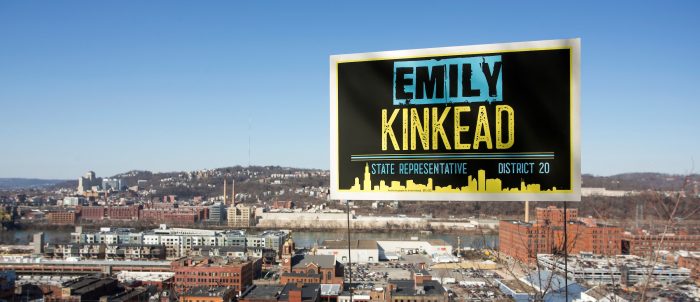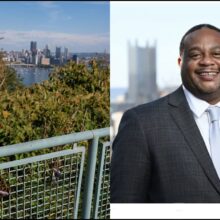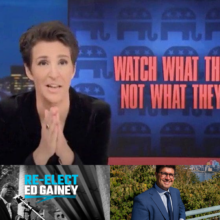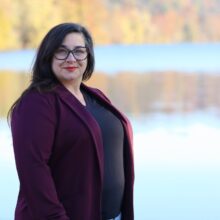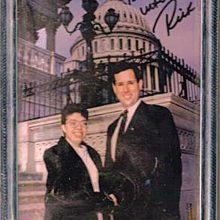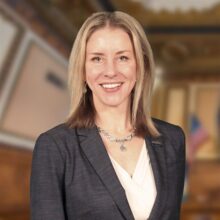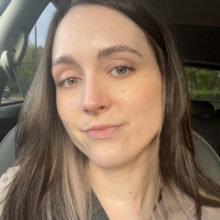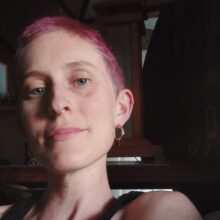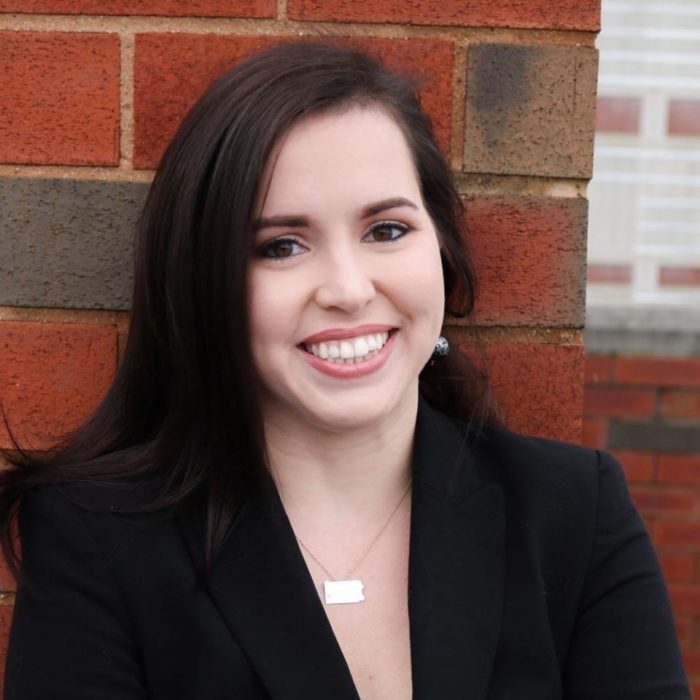
I make a concerted effort to inform myself about the LGBTQIA+-related issues in my district and in our community and the events that I can attend to demonstrate my support. This spans everything from talking to my queer-identifying friends and activists about their experiences to attending the Trans Day of Remembrance and the protest at the Community Outreach Wellness Center.
We are revisiting our Political Q&A series for the upcoming elections of 2020. We’ve reached out to candidates who are pro-choice and pro-LGBTQ, asking them a series of questions about their campaigns. We’ve sent out about a dozen Q&A’s to folks and encourage you to suggest others. Candidates can be anywhere in Pennsylvania running for any level of office. Please note that these are not necessarily endorsements, more of an opportunity for candidates to connect with the LGBTQ community, progressives neighbors, and others with an interest in Western Pennsylvania. If your candidate would like to participate, please contact us pghlesbian at gmail dot com.
Our first response comes from Emily Kinkead, candidate for the Pennsylvania House District 20 Democratic primary, challenging incumbent Adam Ravenstahl. Her district is adjacent to my own home district so I am very interested in this race. It also happens to be the district at the heart of the posts I’ve shared about local Democratic leaders pro-Trump sentiments.
I realize it takes times to complete this Q&A, but it also takes times to create it. And I think the LGBTQ community deserves every moment of that time.

Your Name: Emily Kinkead
Your Pronouns: she/her/hers
The Office You Seek: State Representative, District 20
How do you describe your identity? I identify as a cishet, white woman
What are some under or unappreciated strengths and resources of your district? HD-20 is this beautiful microcosm of all of Allegheny County. Spanning from Polish Hill through Lawrenceville and the Strip into the North Side and out into the Northern Boroughs of Bellevue, Avalon, West View, and part of Ross, there’s something for everyone. While most people know a lot about Lawrenceville, Polish Hill is its quirky little brother with a ton of personality. The North Side has so much beauty and untapped potential stemming from generational family investment. Every neighborhood group on the North Side is deeply committed to seeing the North Side thrive. Bellevue is this lovely little hamlet that will make you forget how close you are to a major metropolitan area – like Pittsburgh’s own Mayberry. Avalon and West View both have this incredible combination of sleepy borough and steel town grit. Ross Township’s quiet progressivism means that it has been a leader on LGBTQIA+ issues, doing what the state has still failed to do – pass LGBTQIA+ non-discrimination legislation.
Tell us about the first LGBTQ person you met and what impact they had on your life? When I was in high school, I was friends with a number of people who were in various stages of discovering, accepting, and embracing their sexuality. As this process continued, I was frustrated that my friends were largely shutting me out and only hanging out with people who identified as LGBTQ. What I quickly learned was that they were protecting themselves from hurt, afraid that any number of their friends who did not identify as LGBTQIA+ would no longer be a safe person to be around. When you don’t know who will actually be an ally, or what an ally even is, especially in a time as volatile as high school, it is easier to wall off and stay in known safe territory. I learned that I needed to be more explicit to let people know that I am someone safe to be exactly who they are around.
Legislating personal religious freedom based exclusively on one narrow interpretation of Christianity is a flagrant violation of the First Amendment’s prohibition against favoring any religion.
Please tell me about your familiarity with the LGBTQ community in your district and the region. The LGBTQIA+ community in District 20, and the whole of the Pittsburgh region, is diverse with myriad interests and issues, most stemming from the intersection of their identity with other marginalized or privileged identities. I make a concerted effort to inform myself about the LGBTQIA+-related issues in my district and in our community and the events that I can attend to demonstrate my support. This spans everything from talking to my queer-identifying friends and activists about their experiences to attending the Trans Day of Remembrance and the protest at the Community Outreach Wellness Center. I volunteered for the Human Rights Campaign around Pride to get attendees to sign postcards to send to Senator Toomey in support of the Equality Act.
Based on this, what do you understand to be our top LGBTQ concerns and priorities for the General Assembly? How will you respond to those priorities? First and foremost, we have to pass the Fairness Act and outlaw discrimination against Pennsylvanians based on sexual orientation or gender identity. I would not just work to educate my own constituents about the need for this legislation, but would work to educate the constituents of legislators who have not been supportive of this Act in order to put pressure on their elected leader to move the ball on this Act.
We need to provide protections for our LGBTQIA+ youth in our schools to allow them to safely be who they are without fear of bullying from either their peers or their teachers/administrators. It is a bare minimum that students should be allowed to use the locker room/bathrooms that correspond with their gender identity and be able to learn without fear of harassment.
We need to address the crisis-level murder rates of our trans sisters and brothers, particularly trans people of color. As a state legislator, I would work to enact hate crime legislation that protects the LGBTQIA+ community.
We must pass a comprehensive conversion therapy ban with teeth. Professional licensing can only be regulated at the state level. Moreover, we can attach criminal punishments to anyone who engages in so-called conversion “therapy” whether they are a licensed therapist or not. In this two-fold approach, we can protect our LGBTQIA+ community from licensed and unlicensed “therapists” who would willingly torture them.
How does intersectionality inform your work? Lifting up the most marginalized communities lifts up all of us. It is a rising tide that lifts all boats. Intersectionality, and specifically centering those identities that are most marginalized, allows me to make decisions that benefit the broad spectrum of people. If I am considering what will help the most vulnerable, I am still able to help those with varying degrees of power and privilege. If I fail to consider the most marginalized, I fail to include necessary groups in solutions and I perpetuate oppression.
I think of my work with L’Arche, a community for people with developmental disabilities built on the foundation of the Beatitudes:
“Blessed are the poor in spirit: for theirs is the kingdom of heaven.
Blessed are they that mourn: for they shall be comforted.
Blessed are the meek: for they shall inherit the earth.
Blessed are they which do hunger and thirst after righteousness: for they shall be filled.
Blessed are the merciful: for they shall obtain mercy.
Blessed are the pure in heart: for they shall see God.
Blessed are the peacemakers: for they shall be called the children of God.
Blessed are they which are persecuted for righteousness’ sake: for theirs is the kingdom of heaven.”
Whether one is religious or Christian or not, I believe that these encapsulate the idea of intersectionality – to center those groups who we would not think to center in our decision-making because when we do, we make better, more inclusive decisions and we help more people with our decisions.
The threats of ‘religious liberty’ laws and exemptions target both LGBTQ rights and women’s rights. How does the state government navigate this equivalency of personal religious freedom with systemic oppression and control of underserved people? The idea that combatting systemic oppression and the disenfranchisement of underserved populations could somehow infringe on anyone’s personal religious freedom is a false narrative made in bad faith. Every religion in the world shares the same basic tenets – helping the less fortunate, showing compassion even for those who are different than you, and love. The state government should play no part in furthering a narrative of exclusion and oppression based on false equivalencies. Moreover, there are myriad religions that explicitly uphold LGBTQ+ rights and women’s rights. Legislating personal religious freedom based exclusively on one narrow interpretation of Christianity is a flagrant violation of the First Amendment’s prohibition against favoring any religion.
How do competitive primary elections benefit the residents of a community? In a place that is so heavily dominated by one party, primaries are the elections. If there is never competition in these races, there is never a new flow of ideas and no ability to let elected leaders know the ways in which they are not meeting the needs of their constituents. If we have competitive primaries, we have the ability to change voices and ensure that all experiences and walks of life are represented in the halls of power. If our communities are forced to accept a representative forever merely because an opposing party has no ability to field a viable candidate, our communities are greatly disserved, and we undercut the true meaning of democracy. Without competitive primaries, we cannot demonstrate how our party and communities evolve and shift in needs and priorities. Without competitive primaries, our elected leaders have carte blanche permission to vote however they choose with no regard to the needs of the communities they serve or the deleterious impacts those votes have on their own constituents.
How will you keep housing affordable on the Northside? Given the state of our current housing crisis, having affordable housing is not even enough. Affordable housing only contemplates affordability based on 30% of a region’s median income. That doesn’t take into account the need for housing of the 50% of residents who don’t even make the median household income of our area. We need to talk about low-cost housing and expanding residents’ abilities to stay in family homes that are paid off, especially when they do not make enough money to cover the average cost of rent in their neighborhoods.
I would like to increase sellers fees for those who flip homes or who purchase real estate from out of state and do not use those homes as a primary residence but as income properties. Those fees would go into a fund that would provide grants or low-interest loans to long-time homeowners to fix issues with their homes that predatory developers might use to force homeowners to sell through reporting ordinance violations, as well as to address issues of tangled title where a home is still technically titled under a deceased relative’s name, etc. I would also like to work with the City to expand their Inclusionary Zoning regions into the North Side, and make them permanent, in anticipation of development coming rather than in response to development that has already made housing unaffordable. I want to invest in Northview Heights and expand the number of available units there while also refurbishing existing units in order to meet the persistent needs of that area.
I want to work with organizations like ACTION Housing to ensure that I, and my colleagues in Harrisburg, have the best information on how to meet the demands of an ever-increasing housing crisis and to anticipate areas where development will focus in order to proactively protect residents and keep housing costs affordable, even as businesses expand and revitalize neighborhoods across the North Side. It is vital that the people who have lived in these neighborhoods for generations be the ones who reap the benefits of renewed investment in their communities.
Tell me about your other endorsements and supporters. I am backed by a progressive coalition of support for which I am both humbled and proud. I have received numerous endorsements that reflect my values and dedication to the cause of progress – reproductive justice, LGBTQIA+ equality, criminal justice reform, clean air and water, living wages and safe working conditions for all, responsible and sustainable development, and a government that works for working people.
Organizations:
SEIU State Council
Unite PAC
Sunrise Movement Pittsburgh
Stonewall Democrats
Young Democrats of Allegheny County (Recommendation)
Electeds and Individuals:
Pittsburgh City Councilor, District 1, Bobby Wilson
Allegheny County Councilor, At-Large, Bethany Hallam
Allegheny County Councilor, District 13, Liv Bennett
Pittsburgh City Councilor, District 8, Erika Strassburger
Lisa Middleman, Public Defender and Former Candidate for Allegheny County District Attorney
Is there anything you’d like to add? I welcome any and all questions about my candidacy, background, qualifications, and commitment to serving this community and my district in a way that honors each and every person here and values them equally.
Where can readers find your campaign on social media?
Facebook: www.facebook.com/emily4pa20
Twitter: @emily4pa20
Instagram: @emily4pa20
